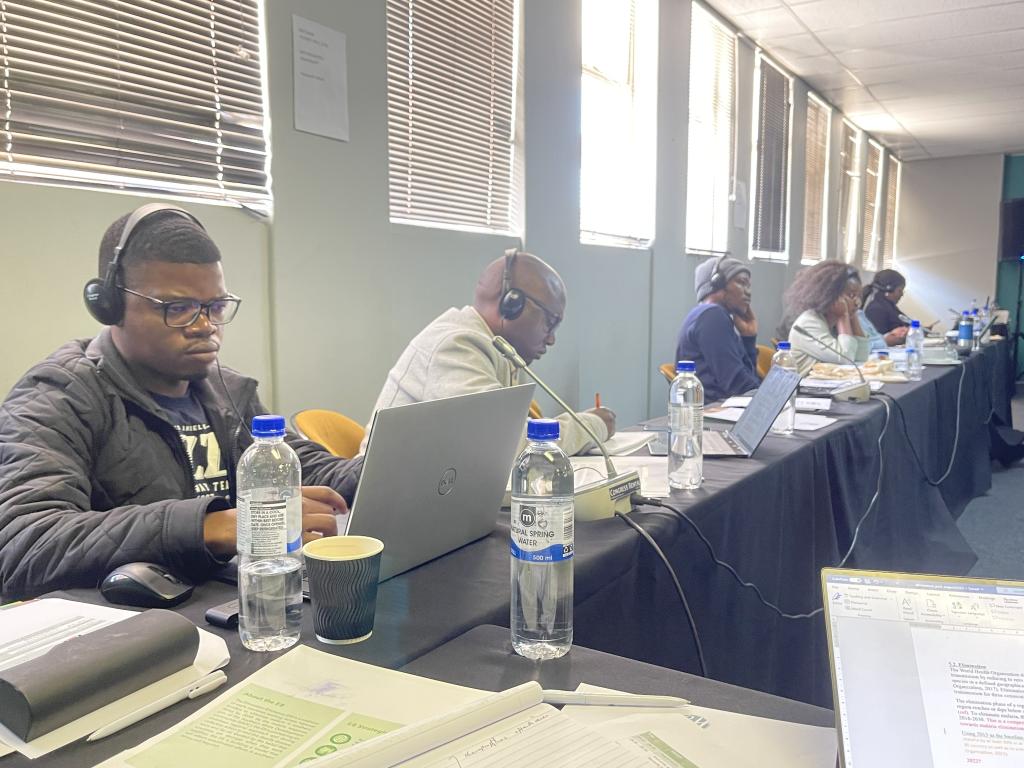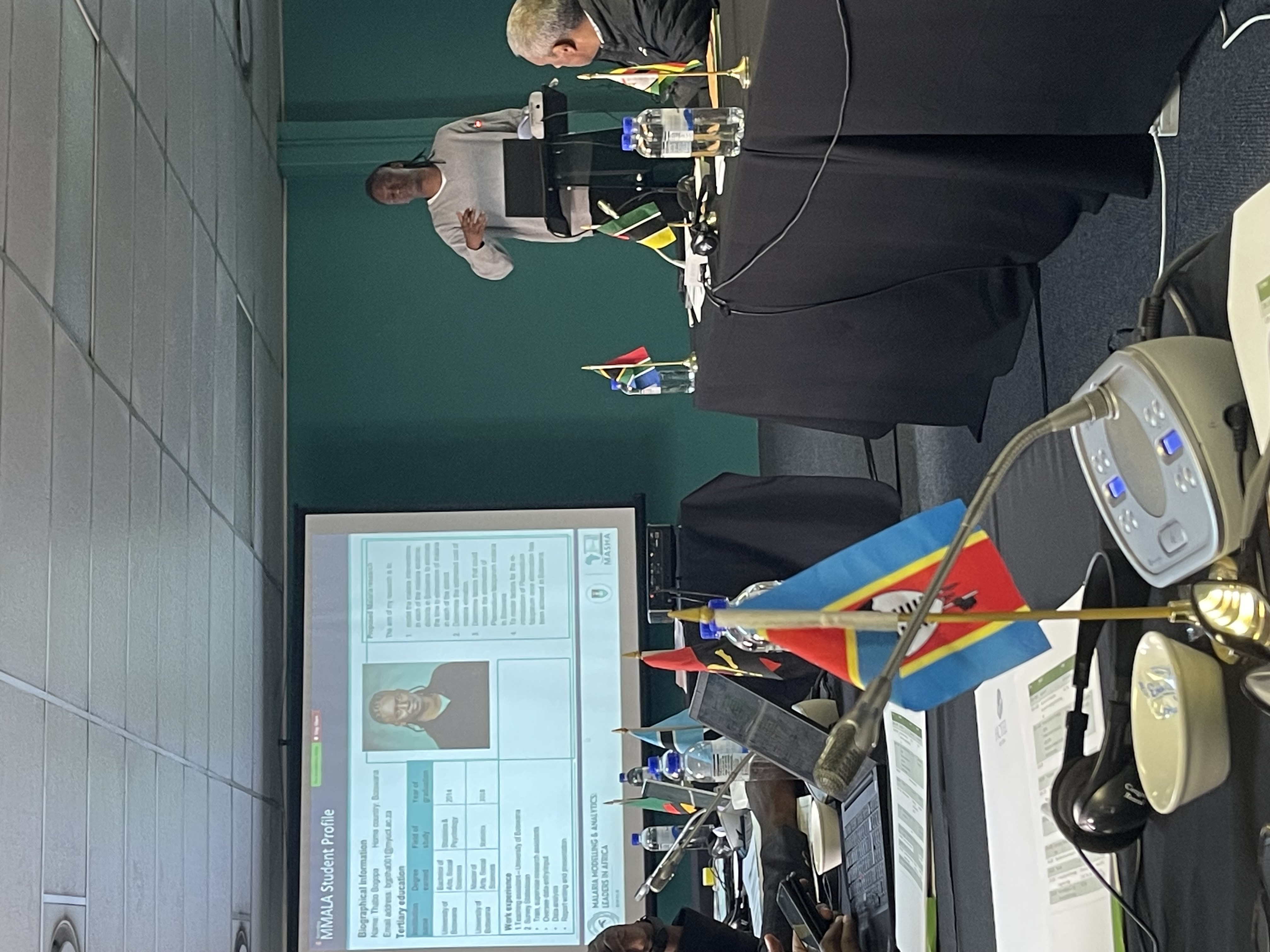Introducing the MMALA cohort to the E8 Technical Working Group

The Malaria Elimination Eight (E8) Technical Working Group (TWG) recently held the E8 research subcommittee meeting on the 4th of August 2023 in Pretoria. Attendees of the meeting included the E8 secretariat and country representatives, World Health Organization (WHO), Clinton Health Access Initiative (CHAI), Isdell Flowers Cross Border Malaria Initiative (IFCBMI) and the Modelling and Simulations Hub, Africa (MASHA).
The purpose of the meeting was to provide regional updates, introduce the Malaria Modelling and Analytics, Leaders in Africa (MMALA) fellows to the TWG, advise on MMALA projects and provide input into the E8 knowledge management strategy. Prof. Sheetal Silal provided an overview of MASHA and the use of mathematics to understand infectious diseases, further highlighting the importance of policy-relevant modelling to mobilise resources for countries working towards malaria elimination. This primed the audience for the MMALA fellows to present their proposed research projects on malaria elimination within various countries in the E8, as well as Kenya, Ghana, and Benin.

The meeting provided a unique opportunity for MMALA fellows to gain insight into the reality on the ground, specifically on malaria programming strategies, key resources, and the subnational stratification of control versus elimination. Students were also able to discuss their data needs and procedures for acquiring the necessary data, and clarify concerns regarding their proposed work. The committee recommended adjustments to the research topics, ensuring that the MMALA research projects address national malaria control programme (NMCP) priorities. In the case of Zambia, Chilochibi Chiziba, initially intended to focus on children under-five as a vulnerable population, however the TWG recommended his work be extended to all age groups at risk to better align to the interests of NMCP.
Further cultivating the relationship between the MMALA fellows and the TWG, some members invited the fellows to visit the NMCP offices and malarious regions they will be modelling to better understand the context. The TWG declared a commitment to supporting their fellows in their research, and facilitating key relationships to ensure data access for the transmission models. This will go a long way in informing modelling that produces operational results that can be used to support policy decisions and implementation across the E8 region.
